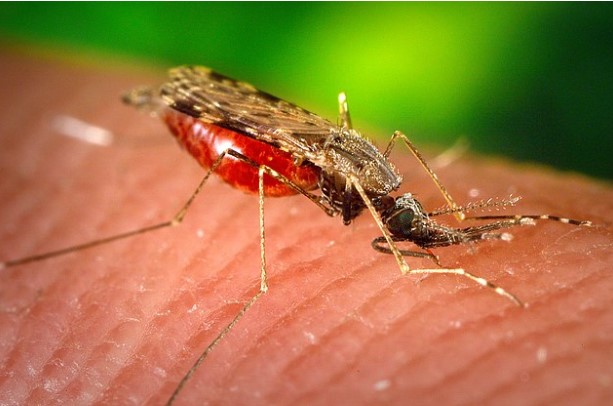Begone Mosquitoes! How to Steer Clear of Mosquitoes 101
Are you tired of being bitten by pesky mosquitoes? Here is some advice to stay mosquito free this summer!
As the weather gets warmer, I cannot help but notice the sudden influx of flying bugs buzzing around the great outdoors. Over spring break, I was playing skribbl.io with my friends when I noticed one of those tiny bloodsuckers zoom across my peripheral vision — that was the very moment I realized mosquito season was encroaching.
In my sixteen years of living, I have noticed that the majority of people fall into two categories: mosquito magnets with 3,000 bites all over their body, or the lucky few that get the occasional bite once every millennium. Unfortunately, if you belong to the former category, like me, you are left with raised welts that itch for a long time. As wise scholars have said, “an ounce of prevention is worth a pound of cure,” so here are some appliances and techniques recommended by Bronx Science students to steer clear of mosquitoes.
Lifestyle Tips
Wearing white or green could be useful in avoiding the detection of mosquitoes. Mosquitoes tend to be attracted to darker colors because they are naturally active during the night. If mosquitoes are exposed to too much sunlight they can get dehydrated and eventually die. Another theory explains that darker colored clothes absorb heat and make the wearer sweat more and expel more carbon dioxide with each breath. Besides, wearing lighter colors can help you spot and swat any pesky mosquitoes that happen to land on you.
Ill-fitting window and door screens could provide entry ways for uninvited guests, like mosquitoes, to enter your safe haven. Once a female mosquito gets into your home, it is a race against the clock to find and eradicate it. Female mosquitoes suck blood after mating in order to use the proteins present to make eggs. There is a 2-3 day window before the female mosquito lays her eggs in a damp, dark place within your residence and delivers hundreds of eggs that eventually turn into a swarm of mosquitoes. By purchasing tight fit mesh screens, you can maintain a mosquito free environment.
On the topic of mesh screens, mosquito nets could also be a practical tool that prevents mosquitoes from biting you in your sleep. There are certain mosquito nets that are treated with insecticides, like pyrroles and pyrethroids, which overstimulate the nervous system of any mosquito that touches the netting. Washing mosquito nets decreases the efficiency of the insecticides, but you can soak the nets in a solution of water and insecticide, then let the mesh air dry.
Utilizing Biotic Methods
Certain plants like marigolds, garlic, lemon balm and catnip are great additions to your garden or indoor plant collection. These herbs and flowers are quite pungent and are rumored to repel mosquitoes; however their effectiveness is questionable. Nonetheless, it can’t hurt to grow some plants (like garlic) that are scrumptious and could potentially repel mosquitoes.There have been mixed reactions regarding the use of carnivorous plants as mosquito population controls. Venus flytraps hunt by releasing a syrupy fruit scent that captivates their intended prey: bugs. Venus flytraps do eat mosquitoes, but since mosquitoes are relatively small, they are unlikely to trigger the hairs that cause the venus flytrap’s mouth hinge to close. Even if a mosquito is caught in a venus flytrap, it takes around a week for the carnivorous plant to digest its prey and reopen its trap.
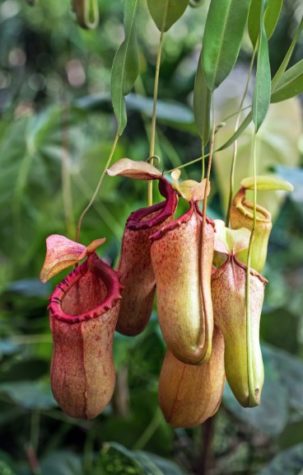
Instead, pitcher plants are better candidates for mosquito eradication within the house because they have a potential to consume more mosquitos and are relatively low maintenance. Pitcher plants trap their prey by attracting them with a sugary nectar. Once the bug reaches the top of the pitcher plant’s leaves, they slip on a thin layer of water on the rim and into the pitcher where they are unable to scale the waxy inner walls. Consequently, the insect is digested by the liquid inside each pitcher. Purple pitcher plants are not as beneficial as other varieties of the plant because there is a species of mosquitoes known as pitcher plant mosquitoes that thrive inside the watery death traps of the purple pitcher plant. Unlike other pitcher plants, purple pitchers have a minuscule amount of digestive enzymes and rely on bacteria to dissolve their food. This allows pitcher plant mosquito larvae to mature and fly out.
Sundews, another type of carnivorous plant, attract insects using droplets of nectar on the tips of their curled leaves. Mosquitoes feed on flower nectar so the nectar on sundews entice them to land, get trapped, and die on the sticky prongs. Unfortunately, like venus flytraps and pitcher plants, there is a downside to sundews. Sundews take weeks to devour their prey and only eat a handful of mosquitoes per month rendering them incapable of lowering the number of mosquitoes in the long term. Using carnivorous plants to control mosquito populations is a gamble that could be considered a last ditch attempt at vanquishing mosquitoes inside your residence.
Appliances
Chances are, when you think of mosquito repellent the first thing that comes to mind is citronella or other essential oils. Over
80% of my interviewees mentioned bug spray, citronella candles, and essential oil bracelets but the responses were often extreme with some calling it magical and others trashing it. Thankfully, there are scentless bug sprays (with picaridin) that are just as effective as sprays that use essential oils. Picaridin is a chemical compound that is an active ingredient in many odorless repellents and is seen as an improvement from diethyltoluamide (DEET). Research suggests that DEET can cause severe neurological harm and rashes when used frequently and in high concentrations. Picaridin, on the other hand, is widely reported as safe for human use, but less research has been done on picaridin compared to DEET. As for those who are firm believers that strong fragrances repel mosquitoes, there is an abundance of bug repellents in the market that use plant-based, natural ingredients that are generally considered safe for use like OFF! Repellent.
“Liushen mosquito repellent is [a] secret weapon against mosquitoes. As a kid, I visited China with my family and got assaulted by mosquitoes, until my mom started applying liushen mosquito repellent. Its scent is incredibly unique, and although I haven’t needed it for a while now, I know it was effective,” said Anny Chen ’23. Although I have not tried Liushen mosquito repellent, there are many reviews online that rave about the effectiveness of this product.
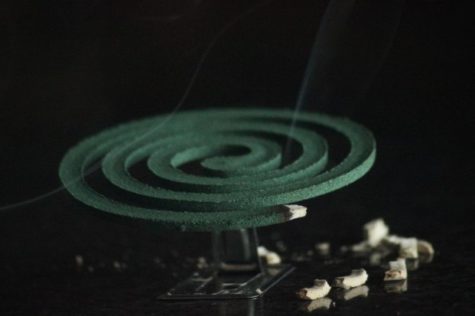
As for the citronella candles, there is reasonable suspicion that mosquitoes are repelled not by the scent of the candles, but rather the smoke emitted. Proponents claim that mosquitoes have a difficult time flying through smoke because it is heavier than air. If that’s the case, starting a controlled fire or lighting unscented candles could be equally effective and less headache-inducing for those who are sensitive to strong scents. If setting things aflame does not sit well with you, fans are another great option to prevent mosquito bites and keep you cool. The air current and breeze generated by electrical fans create conditions that make it difficult for mosquitoes to land on a potential human host.
My personal favorite way to deal with mosquitoes buzzing around my house or in my backyard is an electric bug zapper. Bug zappers retail for around $10-$20 and are easy to use, don’t require good aim, and increase your reach allowing you to get mosquitoes in harder to reach places. As Elliun Jannatul ’25 said, “mosquito electric bats make you feel cool while you are killing mosquitoes.”
Dealing with Mosquito Larvae
Controlling mosquito larvae populations is a precaution that would limit the number of mosquitoes that successfully make it to adulthood and reproduce. Mosquito Bits and Mosquito Dunks contain BTI (Bacillus thuringiensis israelensis) which is a naturally occurring bacteria found in soil that targets developing mosquito larvae and other pests including fungus gnats. BTI works by releasing toxins once consumed by mosquito larvae, leading the larvae to stop eating and die of starvation. BTI is registered by the EPA (Environmental Protection Agency) and does not harm humans, pets, fish, bees, plants, nor the environment, making them safe to place in man-made ponds and pools.
During the spring, a single mosquito can lay hundreds of eggs in standing water. In order to prevent mosquitoes from rapidly reproducing, you should cover or dump any containers, buckets, or other surfaces that are filled with water. Small leaks from air conditioning machines and pipes coupled with deep cracks between tiles can harbor the proper conditions for mosquito breeding as well.
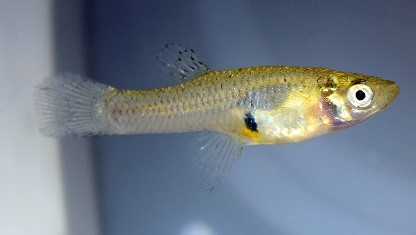
Stand-still, artificial ponds are a frequent breeding ground for mosquitoes. By adding waterfalls or pond aerators to decorative water features, you can both beautify your man-made pond with resonating ripples that also have the effect of preventing mosquitoes from laying their eggs in the water. Likewise, pools without chlorine, pumps, filters and tightly fitted covers are perfect for spawning thousands of mosquitoes. Chlorine prevents the larvae from developing, as well as pumps and filters that circulate the water to discourage mosquitoes from laying their eggs in the pool, and properly fitted pool covers ensure that mosquitoes don’t have access to the pool or any water pockets.
Did you know that some fish eat mosquito larvae? If you have an artificial pond, and do not want to utilize an aerator, guppies and mosquitofish could make great pets that naturally cut down mosquito larvae populations. Both species of fish grow up to 3 inches long, are hardy, and inexpensive. It is worth noting that guppies and mosquitofish should never be released into the wild since they are invasive species that can wreak havoc on native populations and ecosystems.
Aftercare treatment
If you are like the majority of the population, you have been bitten by a mosquito at least once in your lifetime. Here are some tips and suggestions to relieve the swelling and itchiness commonly associated with mosquito bites.
“I normally apply some Cortizone-10 anti-itch liquid (yes, that’s the actual name) since it creates a cooling sensation and numbs the mosquito bite,” said Alison Huang ’24. Cortisone, the active ingredient of Cortizone-10 anti-itch liquid, is a popular synthetic steroid that was mentioned several times by interviewees when asked what is their best way to alleviate itching. Luckily, Cortisone creams and sticks are available to purchase over the counter, but stronger doses of cortisone require a doctor’s prescription. For a mosquito bite, though, higher dosages may not be necessary.
Another well liked mosquito bite treatment option is After Bite. After Bite comes in both liquid and cream form, with sodium bicarbonate (also known as baking soda) acting as the active ingredient for both forms. The After Bite company’s slogan is “the itch eraser,” and I can attest that it leaves a stinging yet cooling sensation, with a briny and sharp smell, that helps me forget the fact that I was bit by a mosquito in the first place.
“Calamine is a pink-colored medicinal lotion that’s been around for decades; in fact, the reason why I know and love calamine lotion is because it’s one of my grandma’s go-to cure-alls! Whenever I get a mosquito bite, I go straight for the medicine cabinet, get a small dollop of calamine lotion on my finger, and gently rub it into the bite in circles. The cooling effect is more or less instantaneous, and subsequently the relief is gloriously refreshing,” said Kaci Rose Goldberg ’24. While I have not heard of calamine lotion prior to this response, calamine lotion works similarly to cortisone and After Bite by providing relief to itchiness. However, calamine lotion is created using a mineral containing zinc oxide and a hint of iron oxide.
In addition, many respondents indicated that by itching around the mosquito bite provided quick relief and did not exacerbate the problem. Another tip that could be applied quickly is creating an x over the bite using your fingernail. This phenomenon can be explained using psychology as the feeling of pressure on skin mitigates the perception of pain. However, both of these approaches provide temporary relief that disappears over the span of a couple of minutes.
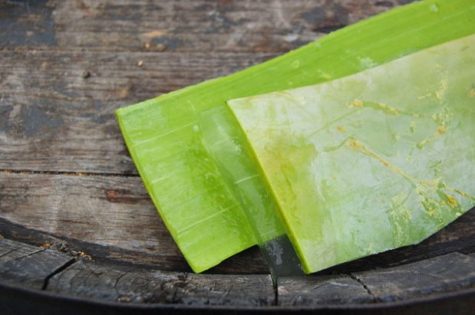
Alcohol pads and hydrogen peroxide are disinfectants that decrease the risk of getting an infected mosquito bite. After applying either alcohol pads or hydrogen peroxide, I’ve noticed that my mosquito bites flatten out and are less red.
My holy grail technique that I learned from my mother is freezing an aloe vera leaf and cutting up a slice whenever you get a mosquito bite. Pressing an inch-long piece of frozen aloe vera directly on the bite can leave a wondrous soothing and cooling sensation. Frozen aloe vera stays fresh for a long time and is essentially an ice cube with the benefits of aloe. Aloe vera leaves are accessible and can be found in many local grocery stores. For guaranteed fresh aloe vera, you can grow your own plant in a pot placed on the windowsill with occasional watering as long as you live in an area with warmer temperatures.
When asked how each respondent views mosquitoes, most perceive these creatures in a negative light. “I hate them, they have no purpose except to humble us and bring us back to the reality that the world is a cruel place,” said Yyra Takat ’25. To reiterate, mosquitoes simply suck.
“I hate them, they have no purpose except to humble us and bring us back to the reality that the world is a cruel place,” said Yyra Takat ’25.
Arianna Hwang is an Editorial Editor for ‘The Science Survey.' She enjoys reading and writing articles as she believes it is important to hear the opinions...

